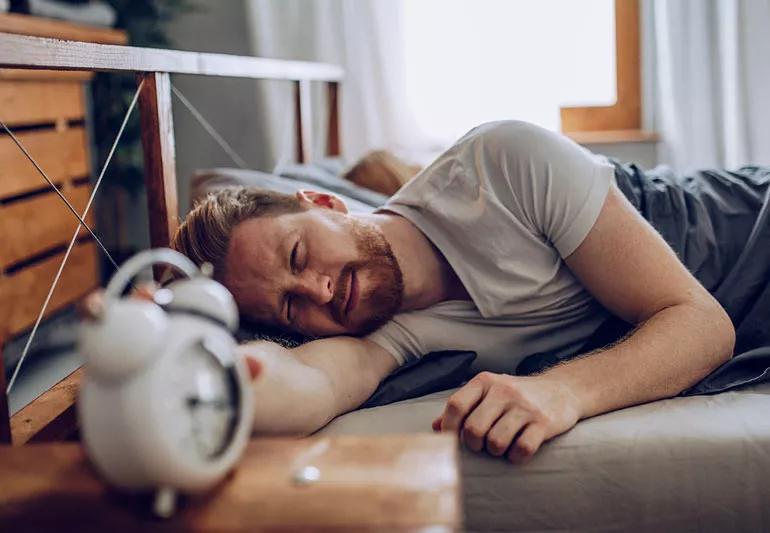A sleep expert weighs in

Image content: This image is available to view online.
View image online (https://assets.clevelandclinic.org/transform/9af852e5-ecfa-49fd-bcab-469706a84590/hitSnooze-928177410-770x553_jpg)
Man hitting snooze button on his alarm clock while in bed
You stayed up a wee bit too late (again) binge watching Game of Thrones. Or perhaps your 18-month-old was crying at 2 a.m. — and again at 3:45 a.m. Whatever the reason, there are times when hitting that snooze button is awfully tempting!
Advertisement
Cleveland Clinic is a non-profit academic medical center. Advertising on our site helps support our mission. We do not endorse non-Cleveland Clinic products or services. Policy
But according to Reena Mehra, MD, MS, Director of Sleep Disorders Research, all of that snoozing isn’t helping our bodies get the restorative sleep that we need.
“Much of the latter part of our sleep cycle is comprised of REM sleep, or dream sleep, which is a restorative sleep state,” Dr. Mehra explains. “And so, if you’re hitting the snooze button, then you’re disrupting that REM sleep.”
We all have different arousal thresholds during different stages of sleep, and if we’re disrupting late stage REM sleep, it can cause a ‘fight or flight’ response – which increases our blood pressure and heartbeat, Dr. Mehra says.
Plus, she notes, the short period of sleep that we get in between hitting the snooze button – five, 10 minutes at a time – isn’t restorative sleep.
While, some people can get conditioned to hitting the snooze and actually get used to it, Dr. Mehra says if a person feels the need hit snooze again and again, it could be an indicator that they’re either not getting enough sleep or they might have an underlying sleep disorder.
If you find yourself hitting the snooze every day, Dr. Mehra says it’s time to take a look at your sleep habits.
Make sure you’re getting seven to eight hours of sufficient sleep and good quality sleep. And if that’s happening — and someone still feels the need to hit that snooze button — then they should probably see their physician to make sure there’s no undiagnosed sleep disorder that could be contributing to their need to hit the snooze.
The best way to de-condition yourself from hitting snooze every morning? Make sleep a priority. Dr. Mehra says many people mistakenly think they can operate on less than seven hours of sleep per night. But research shows that over time, insufficient sleep contributes to weight gain, cardiovascular risks and even death.
Advertisement
“We have so much going on. In this day and age with technology, and phones and TVs in the bedroom contributing to light at night, combined with work and family obligations, the time we spend asleep often gets short-changed,” she says. “Prioritizing seven to eight hours of sleep for our overall well-being and health is very important, so that we can optimize functioning during the day and have healthy relationships with our loved ones.”
Advertisement

Sign up for our Health Essentials emails for expert guidance on nutrition, fitness, sleep, skin care and more.
Learn more about our editorial process.
Advertisement
Experts are still trying to unravel this mystery
Understanding one of sleep's big mysteries
The short answer from a sleep psychologist
Break up with your snooze button by shifting your bedtime and establishing a consistent nighttime routine
Resolve to move a little more, drink a little less, eat a little healthier, sleep a little better and destress a lot
An ice bath can ease sore muscles and decrease inflammation after a workout
Head to bed in a bra to reduce breast pain, nipple irritation and stretch marks
Winding down before bed is key to better sleep
Type 2 diabetes isn’t inevitable with these dietary changes
Applying a hot or cold compress can help with pain
Pump up your iron intake with foods like tuna, tofu and turkey